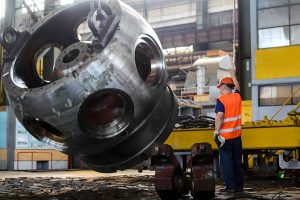5 Exciting Role of Thermal Power Plants in London
Table of Contents
The Essential Role of Thermal Power Plants in London

Thermal power plants in London have historically played a significant role in meeting London’s energy demands, providing electricity for homes, businesses, and industries. Despite advancements in renewable energy technologies, thermal power plants continue to serve as a crucial component of London’s energy infrastructure, offering reliability, flexibility, and resilience to the city’s electricity grid.
Exploring some Major Role of Thermal Power Plants in London
1. Baseload Power Generation:

Thermal power plants, particularly those fueled by natural gas, serve as reliable sources of baseload power in London. Baseload power refers to the minimum level of electricity demand that must be consistently met to ensure grid stability. Unlike intermittent renewable energy sources like solar and wind, thermal energy in London can operate continuously, providing a steady supply of electricity to meet the city’s ongoing energy needs.
2. Grid Stability and Resilience:
The presence of thermal power plants enhances the stability and resilience of London’s electricity grid, especially during periods of high demand or disruptions in renewable energy generation. Thermal power plants can ramp up or down their electricity output relatively quickly, allowing grid operators to respond to fluctuations in demand or supply. This flexibility helps maintain grid stability and prevents power outages during peak demand periods or unforeseen events.
3. Backup Power Generation:

Thermal energy serves as reliable backup generators during emergencies or when renewable energy sources are unable to meet demand. In situations such as extreme weather events or equipment failures, thermal power plants can quickly ramp up their output to provide backup power, ensuring continuity of electricity supply to critical facilities, such as hospitals, data centers, and transportation networks. This backup capacity is essential for maintaining essential services and safeguarding public safety during emergencies.
4. Transition to Low-Carbon Technologies:
While thermal power plants have traditionally relied on Fossil fuels such as coal and natural gas, there is a growing emphasis on transitioning to low-carbon technologies to reduce greenhouse gas emissions and combat climate change. In London, efforts are underway to retrofit existing thermal power plants with cleaner technologies.
Such as combined heat and power (CHP) systems and carbon capture and storage (CCS) technology. These advancements allow thermal energy to generate electricity more efficiently and with lower emissions, aligning with the city’s sustainability goals.
5. Integration with Renewable Energy:
Thermal power plants can complement renewable energy sources by providing backup power and grid stability. As London continues to increase its reliance on renewable energy, thermal energy source can serve as flexible backup generators to compensate for the intermittent nature of solar and wind power. By integrating thermal power with renewables, London can achieve a more balanced and resilient energy mix, ensuring reliable electricity supply while reducing its carbon footprint.
Advantages of Thermal Power Plants

Thermal power has long been a cornerstone of global energy production, offering several advantages that make them indispensable in meeting the world’s growing demand for electricity. From their reliability to their efficiency in generating power, thermal energy plays a crucial role in ensuring energy security and supporting economic development.
1. Reliability and Baseload Power:
One of the primary advantages of power plants is their reliability in providing baseload power. Unlike some renewable energy sources that are intermittent and dependent on weather conditions, thermal power plants can operate continuously, providing a steady and reliable supply of electricity to meet the constant demand for power. This reliability makes thermal power plants essential for maintaining grid stability and ensuring uninterrupted electricity supply to homes, businesses, and industries.
2. Efficiency in Energy Conversion:
Thermal power plants are known for their high efficiency in converting thermal energy into electrical energy. These plants typically use steam turbines to generate electricity by heating water to produce steam, which drives the turbines. The heat required to generate steam is often produced by burning fossil fuels such as coal, natural gas, or oil.
The efficiency of thermal power plants can exceed 40%, meaning they can convert a significant portion of the fuel’s energy content into electricity, making them an efficient option for power generation.
3. Flexibility in Fuel Sources:
Another advantage of thermal energy is their flexibility in fuel sources. While many thermal power plants rely on fossil fuels, such as coal, natural gas, or oil, they can also be adapted to use alternative fuels or waste materials. This flexibility allows thermal power plants to adjust their fuel sources based on availability, cost, and environmental considerations.
Additionally, advancements in technology, such as co-firing biomass with coal or integrating carbon capture and storage (CCS) systems.




